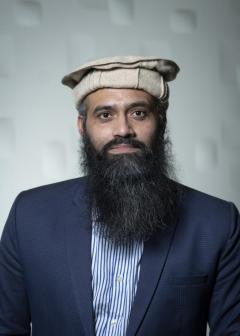 Abdul Salam, assistant professor of computer and information technology, has authored ”Internet of Things for Sustainable Community Development,” addressing the potential of the Internet of Things (IoT) to interact with communities. IoT refers to the digital interconnectivity of wireless devices, such as the connection that enables a homeowner’s security system to display the doorbell camera’s view via the owner’s smart watch.
Abdul Salam, assistant professor of computer and information technology, has authored ”Internet of Things for Sustainable Community Development,” addressing the potential of the Internet of Things (IoT) to interact with communities. IoT refers to the digital interconnectivity of wireless devices, such as the connection that enables a homeowner’s security system to display the doorbell camera’s view via the owner’s smart watch.
In his book, Salam addresses the connections among energy production, climate change and social challenges. He presents research of the sustainable IoT, and how embracing data collection via smart technologies can enable environmental sustainability. However, he also explains the challenge of integrating the huge volumes of data being generated via wireless communications, sensing and systems.
“The data is generated by a range of sensors, from point-based, direct in-situ measurements to airborne and remote sensors for global coverage through satellites,” said Salam. “And the sensing requirements change considerably, stretching from plant-level water status to field-level soil moisture and regional-level cloud hydrometer to global-scale climate crises and greenhouse gases.
“The transmission and processing of this data in decision-support systems to address sustainability challenges requires cross-disciplinary endeavors with expertise in sensing, wireless communications, systems science and modeling, in addition to the specific domain knowledge,” Salam said.
Salam believes the IoT has strong potential to foster the creation of these cross-disciplinary, next-generation sensing and communication systems.
“These IoT systems for data gathering, wireless communications, processing and presentation of sensing data are vital to get insights into the biological, physical and chemical processes in the environment, and forecasting the prospective advancement of ecosystems sustainability,” he said. “These forecasts are also required to support policy and regulation decisions.”
